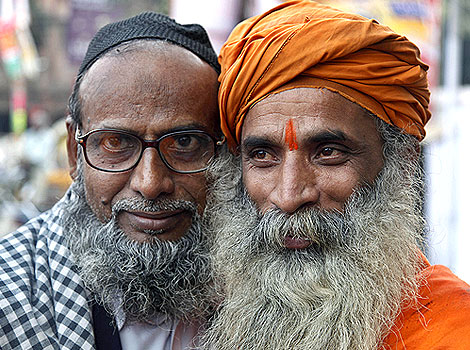
RNA - The temple town has a long tradition of Hindu-Muslim unity and harmonious coexistence. "The Hindu-Muslim integration has taken root in the historical past of this culturally rich city, and is being maintained through multi-religion shrines and various festivities associated with them," said Rana PB Singh, professor of cultural geography and heritage studies, Banaras Hindu University.
According to him, about one-third of the city's population (1.6 millions in 2011) is of Muslims. The importance of Muslims is noticed by existence of their 1,388 shrines and sacred sites, in contrast to Hindu's over 3,300 shrines and sacred sites. Since the beginning of the 11th century, Muslims started settling down here with a predominance of Sunni sect (90%), followed with Shia, Ahle-Hadith and Ahmadiya.
These sects adhere to special rituals and performances attached to their sacred places, but also participate in rituals of other groups also. "Such sacred places maintain multi-religious characteristics, resulting into Hindu-Muslim integration and coexistence. Among such places, 14 are more popular of which five are mazars of Ghazi Miyan, Maqdum Shah, Chandan Shahid, Maulwi ji ka Bara and Yakub Shahid. During religious ceremonies like 'urs' (anniversaries) or 'melas' (religious fairs) at these places, small bazaars also come up to cater to the devotees including Hindus," he said in his study.
Famous Persian Shia poet Sheikh Ali Hazim (1692-1766) came to Varanasi in 1734 and settled here. Mirza Ghalib (1797-1869) also stayed in Banaras for four months. He developed a high sense of attachment to this place, and wrote a poem of 108 stanzas in Persian (Chiragh-i-Dair), of which 69 stanzas directly show his feelings towards Banaras. Kabir, the saint poet, never compromised with fanaticism, whether propounded by Muslims or Hindus. Kabir raised his voice against social evils through the process of mass awakening and self-realisation that may help to constantly promote harmonious coexistence, he mentioned.
The article first appeared on India Times.
R111/108/C/